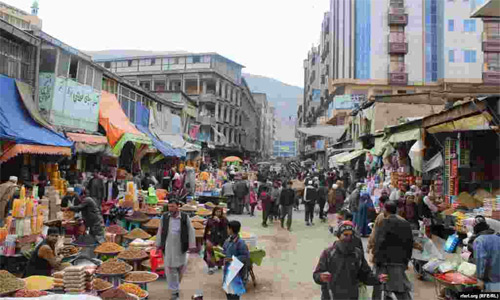With formation new social life and modern human society, debate over use of limited resources to meet the unlimited needs of humankind has been raised as a fundamental issue. Scientists and scholars of social sciences have made constant efforts to find a right answer to fundamental question of how to be able to make a logical balance between the unlimited human needs and the limited resources. These efforts mainly focus on this central point to find a logical and effective mechanism for balancing existing needs and resources. On the other hand, the history of human livelihood has shown that all social changes and many of the world’s scientific and cultural developments are shaped by the factor of economic resources and facilities. The social scientists consider the economy as the foundation for all developments in human life. Our culture has also paid a special attention in the economic variable. This saying is very common in our society: “one, who does not have a livelihood, does not have doomsday reward.”
In the Afghanistan, after many years of war and destruction, now there are some chances to move forward towards social and economic developments. At this step, given the priorities of Afghan society, we need to focus on training of highly professional people so as to lead the economy of our country. According to economic experts, in addition to other factors which caused economic and currency decline in Afghanistan, the main factors are lack of specialist people in field of economic activities. So, we need to cross from the level of managing greatest public banks of the country by undergraduate people; the Afghan National Bank and other financial organization of country must be lead by PDH holders and highly professional people. In short, we can never respond to the economic needs and crisis unless focus on training of human capital through serious investment in universities.
The universities our country, in addition to other disciplines, they need to expand and explain the latest scientific achievements in the economy. According to experts, training of human capital, especially in the field of economics and business management is one of the major areas of social science as a foundation of other social developments. Economics is one of the few areas which influence all areas; perhaps it is not exaggerated, to say that economics is unique among all other majors. Only the professional human capitals are able to make strategic plan and manage private and public businesses and banks.
Initially, the human capital is created by providing children with good primary and secondary school services. Private financing of this type of investment is not feasible for poor children. Countries that are highly developed today have a long history of providing free or highly-subsidized education to the poor. A review of their history suggests that the initial impetus for this schooling had a religious basis, but that as the public’s level of education and income rose, their demand for schooling rose, and the financial support from private donors was replaced or greatly augmented with public funds. If poor countries wish to achieve high levels of national income, they need to provide public funding for the universal education of the poor, at least at the primary and secondary levels of schooling.
Economists believe that poor countries are poor because they lacked human capital. They deduced that rich countries devastated in World War II were able to quickly employ massive amounts of new physical capital, while the poorest countries seemed unable to successfully utilize even small amounts. They theorized that a nation’s capability to productively use physical capital is a function of its level of human capital and that if human capital does not increase along with physical capital, then economic development cannot proceed. In addition, it is notified that human capital is more likely to be the constraint to development because foreign investors are eager to invest in physical capital, but not in human capital.
However, the relationships between the two capitals (human capital and physical capital) are complementary. There is some variation in the relative amounts of the two types of capital, but no countries have high levels of only one type. For example, the U.S. has more human than physical capital, while Japan has more physical than human capital, but both countries have high levels of both. Similarly studies show that economic development does not occur automatically. If it did, there would not be such large differences in the magnitude of the capital stocks between countries. Nevertheless there are some other characteristic(s) which is not present in the less developed countries, facilitated historic investment in both types of capital. It is also evident that whatever these characteristics are, they vary widely across countries because levels of capital/adult vary widely. If human capital and physical capital are complementary, then historically either type of capital or both could have been the factor limiting investment in the other type of capital.
Finally, the most suitable and sustainable solutions for poverty reduction, economic growth and social development of the country is to prioritize some key educational field such as economics, politics, psychology, education and so on. Accordingly, the policy makers of the country can make their skillful economic strategy on basis newly produced economic theories with help of national universities. With the aim of sustainable development in the field of economy it is predicted that the academic centers of country would be able to take effective steps towards social and economic growth of the country.
Home » Opinion » The Economic Decline is Rooted in Lack of Human Capital in Afghanistan
The Economic Decline is Rooted in Lack of Human Capital in Afghanistan
| Mohammad Zahir Akbari

